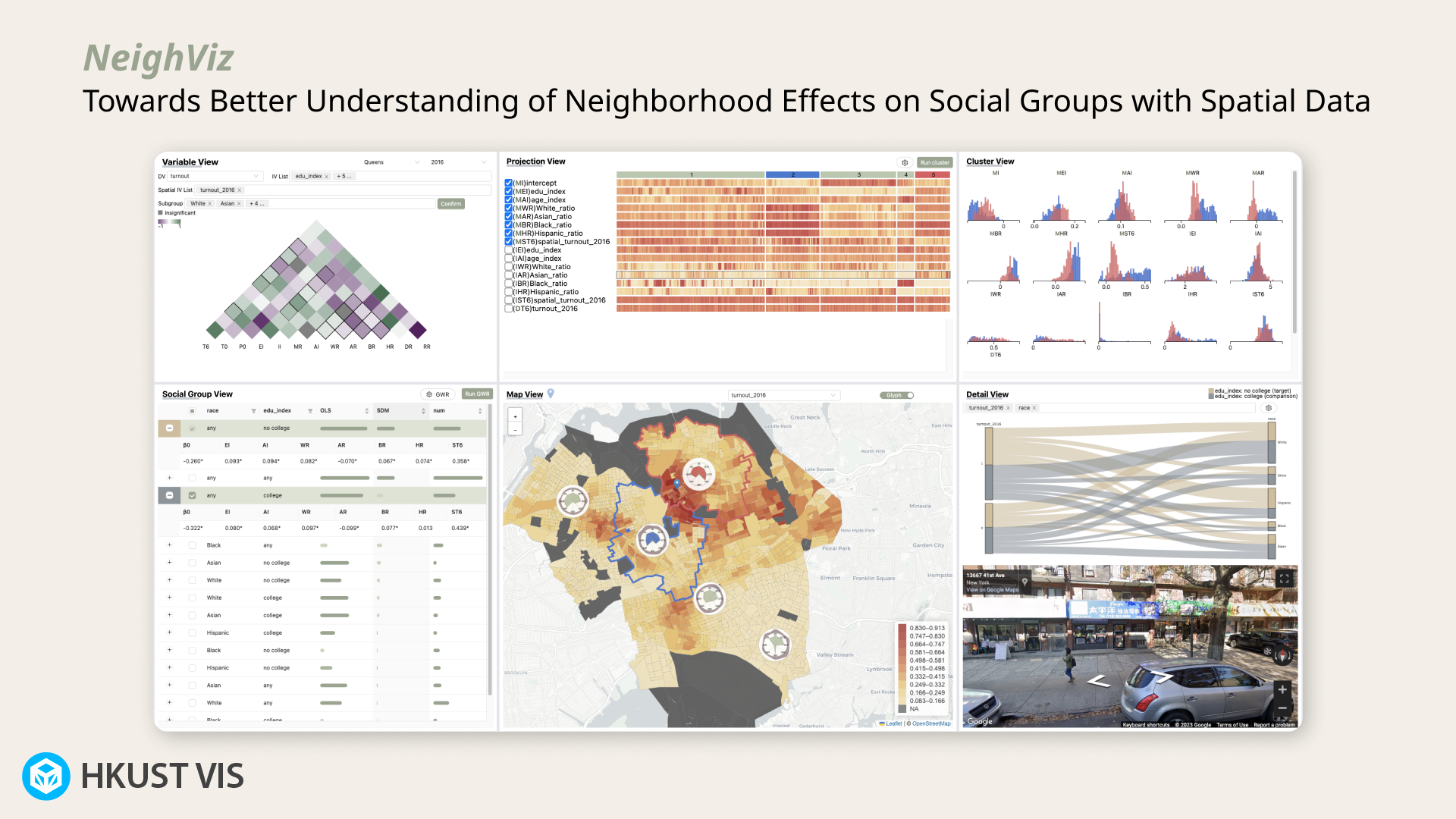NeighViz: Towards Better Understanding of Neighborhood Effects on Social Groups with Spatial Data
Yue Yu, Yifang Wang, Qisen Yang, Di Weng, Yongjun Zhang, Xiaogang Wu, Yingcai Wu, Huamin Qu
Room: 106
2023-10-23T03:00:00ZGMT-0600Change your timezone on the schedule page
2023-10-23T03:00:00Z

Fast forward
Abstract
Understanding how local environments influence individual behaviors, such as voting patterns or suicidal tendencies, is crucial in social science to reveal and reduce spatial disparities and promote social well-being. With the increasing availability of large-scale individual-level census data, new analytical opportunities arise for social scientists to explore human behaviors (e.g., political engagement) among social groups at a fine-grained level. However, traditional statistical methods mostly focus on global, aggregated spatial correlations, which are limited to understanding and comparing the impact of local environments (e.g., neighborhoods) on human behaviors among social groups. In this study, we introduce a new analytical framework for analyzing multi-variate neighborhood effects between social groups. We then propose NeighViz, an interactive visual analytics system that helps social scientists explore, understand, and verify the influence of neighborhood effects on human behaviors. Finally, we use a case study to illustrate the effectiveness and usability of our system.